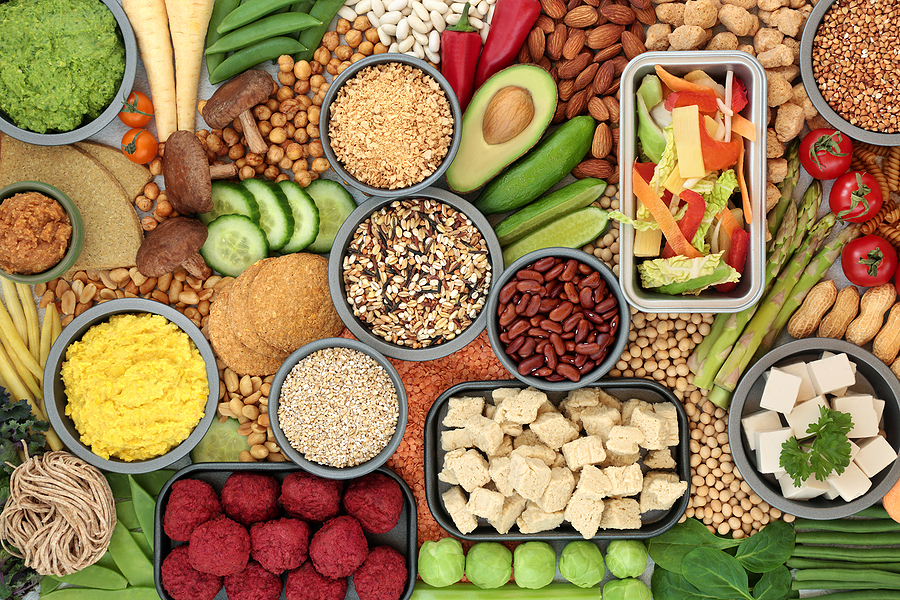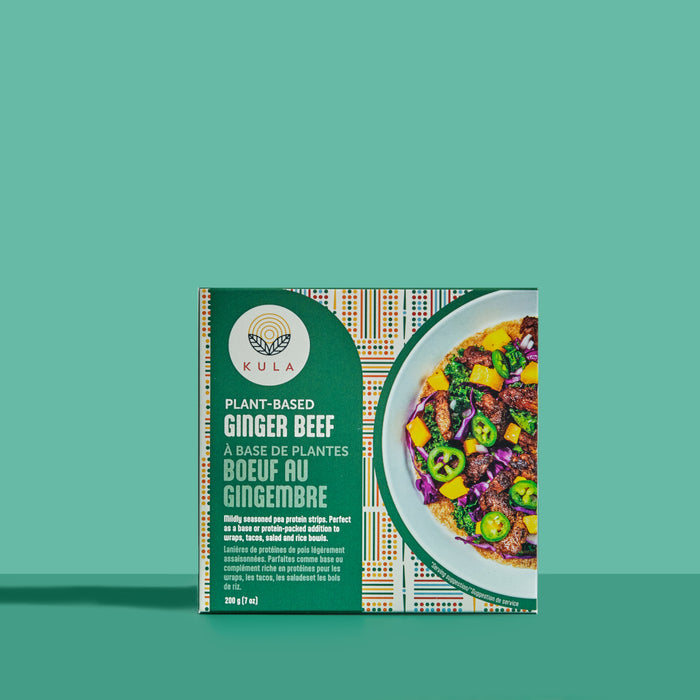Gluten Free BBQ Sauce Recipes That Even Meat-Eaters Will Love
Gluten Free BBQ Sauce Recipes That Even Meat-Eaters Will Love
Blog Article
Everything About Healthy Food: Benefits of Taking On Plant Based Choices
The discussion bordering plant-based diet plans has acquired significant focus recently. Many individuals are discovering the possible health and wellness benefits, nutritional advantages, and ecological impacts connected with these dietary choices. As individuals become much more familiar with their food's influence on health and sustainability, questions develop about the practicalities of taking on such a way of living. What specific changes can one anticipate, and exactly how might these options improve not just personal health yet also the planet's future?
Recognizing Plant-Based Diet Regimens
Although many individuals connect plant-based diets mainly with vegetarianism or veganism, these diet plans can encompass a variety of eating patterns that prioritize entire, minimally refined plant foods. Such diet plans usually consist of fruits, vegetables, whole grains, nuts, legumes, and seeds, while restricting or removing pet products. This adaptability enables people to tailor their nutritional selections according to individual preferences and nutritional demands. Some may adopt a primarily plant-based diet plan while still periodically consuming meat or dairy, usually described as a flexitarian method. The emphasis remains on integrating more plant foods, which can lead to a diverse variety of dishes and tastes. Comprehending these numerous analyses of plant-based consuming is important for appreciating its access and appeal in modern food culture.
Health And Wellness Perks of Plant-Based Foods
The wellness benefits of plant-based foods are substantial, supplying a nutrient thickness benefit that sustains general health. Study indicates that these foods can improve heart wellness and play an essential role in effective weight monitoring. By incorporating a lot more plant-based choices, people might enhance their dietary choices and promote long-term wellness.
Nutrient Thickness Benefit
Nutrient thickness plays a crucial function in the health benefits of plant-based foods, making them a compelling selection for those looking for a balanced diet plan. Plant-based foods, such as fruits, vegetables, legumes, nuts, and whole grains, are commonly abundant in crucial vitamins, minerals, and anti-oxidants while being reduced in calories. This high nutrient thickness allows individuals to eat less calories while still satisfying their nutritional demands. In addition, these foods are packed with dietary fiber, promoting digestion health and wellness and helping in weight management. By integrating nutrient-dense plant-based choices, consumers can boost their general health and wellness, sustain their body immune systems, and minimize the risk of persistent conditions. Ultimately, the nutrient thickness of plant-based foods highlights their significance in a health-conscious way of living.
Heart Health Improvement

Weight Administration Support
Along with advertising heart health, a plant-based diet plan can significantly help in weight administration. This nutritional technique highlights whole foods such as fruits, veggies, vegetables, nuts, and whole grains, which are usually lower in calories and greater in fiber compared to animal-based items. The high fiber material helps boost satiation, minimizing overall calorie consumption. Plant-based diets are commonly abundant in vital nutrients while reduced in unhealthy fats, making it much easier to maintain a healthy and balanced weight. Research suggests that people that embrace a plant-based lifestyle have a tendency to have reduced body mass indexes (BMIs) and experience more successful weight loss contrasted to those that consume meat-heavy diets. Accepting plant-based alternatives is a strategic option for efficient weight administration.
Nutritional Worth of Plant-Based Active Ingredients
Plant-based ingredients are rich in vital nutrients, using a varied array of vitamins, minerals, and antioxidants that add to general health. A contrast of healthy protein resources exposes that while pet products are frequently considered as remarkable, lots of plant-based options supply ample healthy protein and various other valuable substances. Understanding the nutritional worth of these active ingredients can help people make notified dietary choices.
Necessary Nutrients in Plants
Nutrient-rich active ingredients located in plants use a diverse array of important minerals and vitamins that contribute significantly to general health and wellness. These components are rich in vitamins A, C, and K, which support immune feature, vision, and blood clotting, respectively. Furthermore, plants provide important minerals such as potassium, calcium, and magnesium, essential for heart wellness, muscle mass function, and bone toughness. The existence of fiber in plant-based foods aids digestion and advertises a healthy gut microbiome. Antioxidants, found perfectly in vegetables and fruits, aid battle oxidative tension and reduce swelling. Furthermore, lots of plant foods are reduced in calories yet high in nutrients, making them an outstanding selection for those seeking to maintain a healthy weight while ensuring suitable nutrient intake.
Comparing Protein Resources
Protein sources vary considerably in their dietary accounts, with plant-based components providing one-of-a-kind advantages. Unlike pet proteins, which usually contain hydrogenated fats and cholesterol, plant healthy proteins have a tendency to be lower in these harmful elements. Legumes, nuts, seeds, and whole grains are rich in necessary amino acids, fiber, vitamins, and minerals. Lentils supply high healthy protein content alongside substantial iron and folate, while quinoa is a total protein, providing all nine crucial amino acids. Furthermore, plant-based proteins are typically gone along with by antioxidants and phytochemicals that sustain overall wellness. The shift to plant-based healthy protein resources not just boosts nutritional consumption however also lines up with sustainable dietary techniques, minimizing environmental effect and promoting long-lasting health advantages.
Environmental Influence of Plant-Based Eating
As understanding of climate adjustment grows, lots of individuals are discovering sustainable nutritional choices that can substantially reduce their environmental impact. Plant-based eating has actually arised as a considerable contributor to decreasing greenhouse gas emissions, which are largely related to livestock manufacturing. The farming of fruits, vegetables, grains, and beans normally calls for fewer sources, such as water and land, contrasted to animal farming. Furthermore, plant-based diet regimens can result in lowered logging, see here as less land is needed for grazing livestock or expanding animal feed. By moving in the direction of plant-based alternatives, consumers can sustain biodiversity and advertise much healthier communities. Generally, welcoming plant-based eating not only advantages individual wellness yet also represents a crucial action towards ecological sustainability and preservation efforts.
Overcoming Common Misconceptions
While numerous individuals recognize the benefits of a plant-based diet, several mistaken beliefs usually deter them from completely accepting this way of life. A typical belief is that plant-based diets lack sufficient protein; however, numerous plant resources, such as beans, nuts, and tofu, provide ample healthy protein. In addition, some presume that this diet is expensive, when as a matter of fact, staples like beans, rice, and seasonal vegetables can be rather cost effective. Another misconception is that plant-based consuming is extremely restrictive, whereas it actually uses a varied variety of foods and flavors. Many worry that a plant-based diet regimen may lead to shortages, yet with appropriate planning, people can acquire all necessary nutrients, consisting of vitamins and minerals, while enjoying a vast variety of scrumptious meals. Vast Tips for Transitioning to a Plant-Based Way of life
Making the shift to a plant-based way of living can be an enriching experience, though it usually needs some guidance to browse the initial adjustments. First, people are encouraged to begin gradually, integrating even more fruits, veggies, vegetables, and whole grains right into their dishes while reducing meat and dairy usage. Meal preparation is important; preparing an once a week menu best site can aid ease the adjustment and prevent last-minute undesirable selections. Exploring cooking approaches and new recipes can likewise preserve and enhance the experience exhilaration about plant-based consuming. Furthermore, signing up with support system or communities can provide inspiration and share valuable ideas. Finally, staying informed concerning nutrition warranties balanced dishes, avoiding shortages while promoting a healthy, gratifying plant-based way of life.
Delicious Plant-Based Meal Concepts
Discovering delicious plant-based dish concepts can inspire people to accept a more nourishing diet regimen. One prominent alternative is a passionate quinoa salad, featuring cherry tomatoes, cucumber, and a vibrant lemon-tahini dressing. Another fave is a savory lentil stew, packed with carrots, celery, and great smelling natural herbs, best for a reassuring dinner. For morning meal, over night oats made with almond milk, chia seeds, and covered with fresh berries provide a nourishing start to the day. Furthermore, a vivid vegetable stir-fry with tofu and a variety of vibrant veggies can be a quick yet satisfying meal. Lastly, luscious avocado salute on whole-grain bread, sprinkled with seasonings and seeds, supplies an easy yet delicious snack. These dishes display the selection and splendor of plant-based consuming.

Regularly Asked Concerns
Can a Plant-Based Diet Plan Offer Enough Healthy Protein?
The inquiry of whether a plant-based diet plan can provide enough healthy protein is typical. Numerous resources, including legumes, nuts, seeds, and entire grains, can satisfy protein requires efficiently, supporting a nutritious and well balanced diet plan for people.
Are Plant-Based Diet Plans Appropriate for Kid?
The suitability of plant-based diet regimens for kids depends on cautious preparation. Appropriate nutrients should be assured, including healthy proteins, vitamins, and minerals. With correct support, such diets can sustain healthy development and development in kids.
Just how Do I Eat in restaurants on a Plant-Based Diet plan?
Eating out on a plant-based diet includes looking for dining establishments with varied menus, requesting modifications, and checking out vegan-friendly options. Preparation in advance and communicating nutritional choices can improve the eating experience while maintaining dietary options.
What Prevail Allergens in Plant-Based Foods?
Usual allergens in plant-based foods include soy, gluten, nuts, and seeds - Plant Based Chicken. People adhering to a plant-based diet needs to know these allergens and check out tags carefully to prevent negative responses and assure safe consumption
Can Plant-Based Diets Assist With Weight Loss?
Research suggests that embracing a plant-based diet plan might facilitate weight management as a result of its commonly lower calorie density and higher fiber material. This mix can improve satiation, assisting people handle their calorie consumption properly. Several individuals associate plant-based diets primarily with vegetarianism or veganism, these diet plans can include a large about his range of consuming patterns that prioritize whole, minimally refined plant foods. Nutrient thickness plays an important role in the health and wellness benefits of plant-based foods, making them an engaging choice for those seeking a balanced diet. Plant-based diet plans have been shown to significantly boost heart health and wellness, as they often consist of aspects that support cardiovascular feature. In enhancement to promoting heart health, a plant-based diet can considerably aid in weight monitoring. An usual belief is that plant-based diets do not have enough healthy protein; nevertheless, various plant resources, such as vegetables, nuts, and tofu, supply enough healthy protein.
Report this page